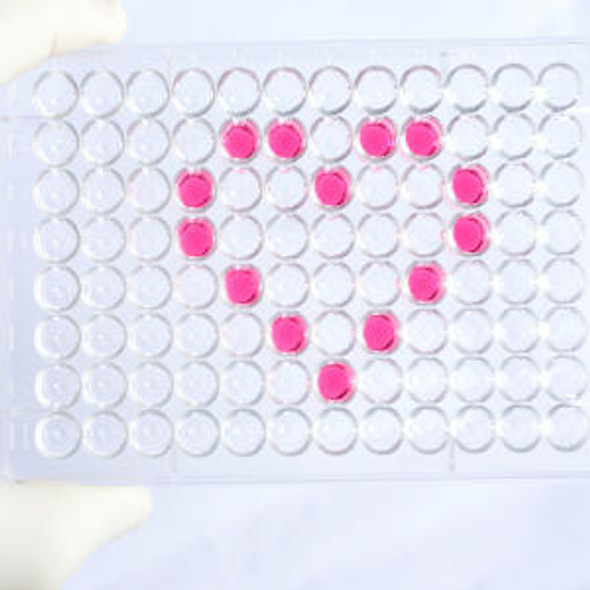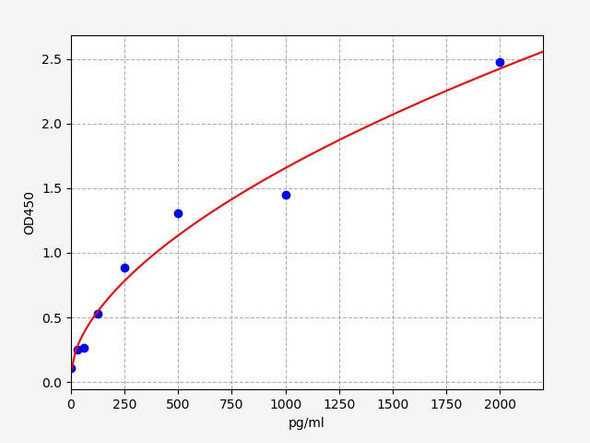Description
| Product Name: | QuickStep Human PCT (Procalcitonin) ELISA Kit |
| Product Code: | AEES00631 |
| Assay Type: | Sandwich |
| Format: | 96 Assays |
| Assay Time: | 2.5h |
| Reactivity: | Human |
| Detection Range: | 0.31-20 ng/mL |
| Sensitivity: | 0.08 ng/mL |
| Sample Type & Sample Volume: | Serum, plasma, urine, 50μL |
| Specificity: | This kit recognizes Human PCT in samples. No significant or interference between Human PCT and analogues was observed. |
| Reproducibility: | Both intra-CV and inter-CV are < 10%. |
| Application: | This ELISA kit applies to the in vitro quantitative determination of Human PCT concentrations in serum, plasma, urine.Please consult technical support for the applicability if other biological fluids need to be tested. |
This ELISA kit uses the Sandwich-ELISA principle. The micro ELISA plate provided in this kit has been pre-coated with an antibody specific to Human PCT. Samples (or Standards) and biotinylated detection antibody specific for Human PCT are added to the micro ELISA plate wells. Human PCT would combine with the specific antibody. Then Avidin-Horseradish Peroxidase (HRP) conjugate are added successively to each micro plate well and incubated. Free components are washed away. The substrate solution is added to each well. Only those wells that contain Human PCT, biotinylated detection antibody and Avidin-HRP conjugate will appear blue in color. The enzyme-substrate reaction is terminated by the addition of stop solution and the color turns yellow. The optical density (OD) is measured spectrophotometrically at a wavelength of 450 ± 2 nm. The OD value is proportional to the concentration of Human PCT. You can calculate the concentration of Human PCT in the samples by comparing the OD of the samples to the standard curve.
| Kit Components: | An unopened kit can be stored at 2-8℃ for six months. After test, the unused wells and reagents should be stored according to the table below.
|
| 1. | Add 50μL standard or sample to the wells, immediately add 50μL Biotinylated Detection Ab working solution to each well. Incubate for 90 min at 37°C |
| 2. | Aspirate and wash the plate for 3 times |
| 3. | Add 100μL HRP conjugate working solution. Incubate for 30 min at 37°C. Aspirate and wash the plate for 5 times |
| 4. | Add 90μL Substrate Reagent. Incubate for 15 min at 37°C |
| 5. | Add 50μL Stop Solution |
| 6. | Read the plate at 450nm immediately. Calculation of the results |
Procalcitonin (PCT), the precursor of the hormone calcitonin, comprises 116 amino acids and is present in minute quantities under healthy conditions[1]. PCT and other calcitonin precursors in serum are present at less than 50 pg/mL in healthy individuals, but are highly elevated in serum where conditions leading to systemic inflammatory response syndrome or sepsis prevail. The level of PCT has been observed to increase significantly with bacterial infection and correlate to the severity of the infection. Therefore, serum PCT has been considered a powerful biomarker for the diagnosis of bacterial infection[2]. PCT has been proven to have high accuracy as a marker of infection in adult patients, particularly in sepsis. In children it has been investigated in several conditions, including neonatal sepsis, severe infection in neutropenic children, and other specific bacterial infections (e.g. urinary tract infections, pneumonia, bone and joint tissue infections).






